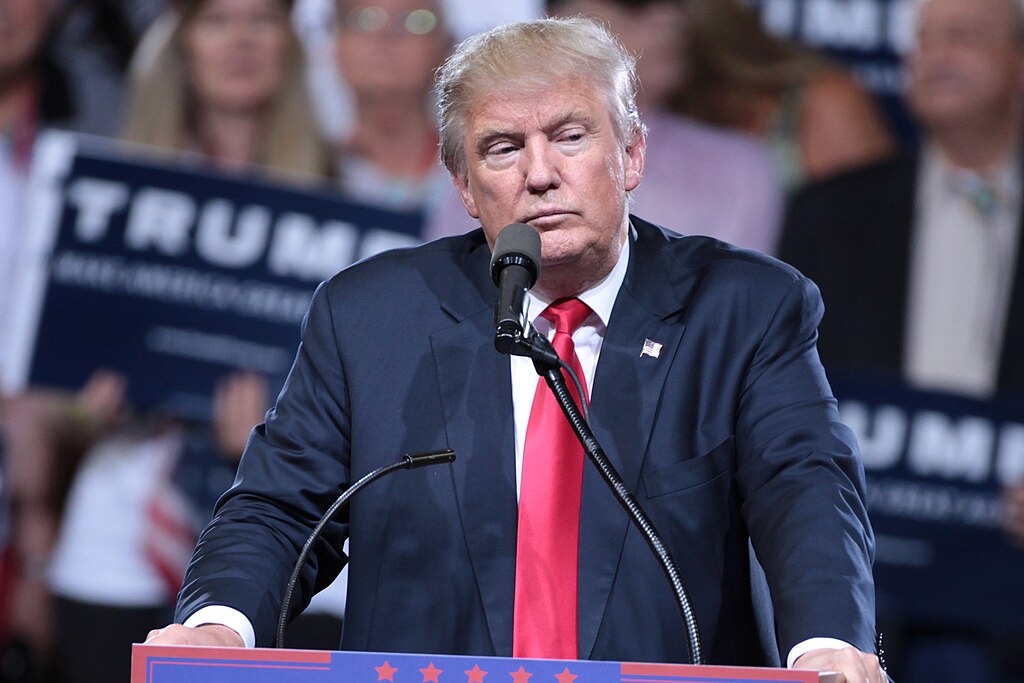President Donald Trump’s healthcare policies for veterans in 2025 have reignited national discourse, with sweeping reforms aimed at improving access and reducing wait times. While many veterans’ groups have expressed gratitude for the efforts, critics argue that the policies fall short of addressing systemic issues.
Expanded Access to Care Through Privatization
Central to Trump’s 2025 healthcare agenda is an expansion of the Veterans Choice Program, which allows veterans to seek care from private healthcare providers. The policy, which builds on legislation passed during Trump’s first term, aims to give veterans more flexibility and reduce long-standing wait times at VA facilities.
“Veterans deserve the best care, whether it’s at the VA or in the private sector,” Trump said during a press conference. His administration announced an increase in funding for the program, claiming it would ensure veterans can access specialized treatments not always available at VA hospitals.
The administration also pledged to modernize VA facilities, introducing advanced telehealth options and upgrading outdated infrastructure to meet the needs of younger veterans returning from recent conflicts.
Criticism Over Funding and Priorities
Despite the administration’s promises, some lawmakers and advocacy groups have raised concerns about the long-term impact of privatization. Critics argue that redirecting funds to private providers could undermine the VA’s ability to offer comprehensive care, particularly for veterans with complex or chronic conditions.
“The focus should be on strengthening the VA system, not diverting resources to private corporations,” said Rachel Turner, a spokesperson for Veterans United for Justice. She added that the reforms risk leaving the most vulnerable veterans behind.
Additionally, some healthcare experts warn that private providers may lack the specialized training required to address the unique medical and psychological needs of veterans.
Veterans’ Reactions Highlight Divisions
Trump’s healthcare policies have sparked varied reactions among veterans and their families. Social media has become a battleground for opinions:
- @ProudVet1987: “Thank you, President Trump! Finally, someone is cutting the red tape for us veterans.”
- @FixTheVA: “Private care is NOT the solution. The VA needs reform, not abandonment.”
- @ArmyMom4Life: “My son struggled to get an appointment for months. This is the change we needed!”
- @VetAdvocateNow: “More funding for privatization? Sounds like a gift to corporate healthcare, not real help for veterans.”
- @PatriotNurse123: “Telehealth options are a game changer! Grateful for this administration’s commitment to innovation.”
- @NoMoreEmptyPromises: “This is just political theater. Veterans deserve better than half-baked solutions.”
The Road Ahead for VA Reform
As Trump pushes forward with his 2025 veteran healthcare agenda, the debate over privatization and VA funding is likely to intensify. Supporters argue that offering veterans more choices is a step in the right direction, while detractors warn of unintended consequences for the VA system.
The administration has promised to assess the impact of these policies through annual reviews, but critics remain skeptical about their effectiveness. For now, Trump’s policies on veteran healthcare are shaping up to be a defining issue of his second term.



 Why did Iran bomb Dubai? A Middle East expert explains the regional alliances at play
Why did Iran bomb Dubai? A Middle East expert explains the regional alliances at play  Zelenskiy Urges Change in Iran After U.S. and Israeli Strikes, Cites Drone Support for Russia
Zelenskiy Urges Change in Iran After U.S. and Israeli Strikes, Cites Drone Support for Russia  Trump Says U.S. Combat Operations in Iran Will Continue Until Objectives Are Met
Trump Says U.S. Combat Operations in Iran Will Continue Until Objectives Are Met  Suspected Drone Strike Hits RAF Akrotiri Base in Cyprus, Causing Limited Damage
Suspected Drone Strike Hits RAF Akrotiri Base in Cyprus, Causing Limited Damage  Failure of US-Iran talks was all-too predictable – but Trump could still have stuck with diplomacy over strikes
Failure of US-Iran talks was all-too predictable – but Trump could still have stuck with diplomacy over strikes  Israel Strikes Hezbollah Targets in Lebanon After Missile and Drone Attacks
Israel Strikes Hezbollah Targets in Lebanon After Missile and Drone Attacks  Does international law still matter? The strike on the girls’ school in Iran shows why we need it
Does international law still matter? The strike on the girls’ school in Iran shows why we need it  Marco Rubio to Brief Congress After U.S.-Israeli Strikes on Iran
Marco Rubio to Brief Congress After U.S.-Israeli Strikes on Iran  Trump Warns Iran as Gulf Conflict Disrupts Oil Markets and Global Trade
Trump Warns Iran as Gulf Conflict Disrupts Oil Markets and Global Trade  UK Accepts U.S. Request to Use British Bases for Defensive Strikes on Iranian Missiles
UK Accepts U.S. Request to Use British Bases for Defensive Strikes on Iranian Missiles  Trump to Address Nation as U.S. Launches Strikes in Iran, Axios Reports
Trump to Address Nation as U.S. Launches Strikes in Iran, Axios Reports  Middle East Conflict Escalates After Khamenei’s Death as U.S., Israel and Iran Exchange Strikes
Middle East Conflict Escalates After Khamenei’s Death as U.S., Israel and Iran Exchange Strikes  U.S. Deploys Tomahawks, B-2 Bombers, F-35 Jets and AI Tools in Operation Epic Fury Against Iran
U.S. Deploys Tomahawks, B-2 Bombers, F-35 Jets and AI Tools in Operation Epic Fury Against Iran  Trump Says U.S. Attacks on Iran Will Continue, Warns of More American Casualties
Trump Says U.S. Attacks on Iran Will Continue, Warns of More American Casualties  Israel Launches Fresh Strikes on Iran After Death of Supreme Leader Ayatollah Khamenei
Israel Launches Fresh Strikes on Iran After Death of Supreme Leader Ayatollah Khamenei  Australia Rules Out Military Involvement in Iran Conflict as Middle East Tensions Escalate
Australia Rules Out Military Involvement in Iran Conflict as Middle East Tensions Escalate 
































